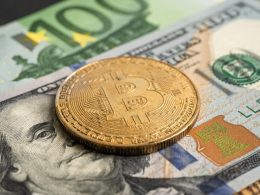Currency markets, also known as foreign exchange (Forex) markets, are highly Currency Markets dynamic and sensitive to global events. Various international occurrences, such as geopolitical tensions, economic policies, natural disasters, and pandemics, can have a significant influence on the valuation of currencies. This article explores the different types of global events that impact currency markets and provides an analysis of how these events affect exchange rates. The goal is to provide an easy-to-understand breakdown of the complex relationship between global events and currency markets.
Understanding Currency Markets
Currency markets function as decentralized global markets where currencies are bought and sold. The primary players in Forex markets include central banks, financial institutions, governments, corporations, and individual traders. The value of a currency, compared to another, fluctuates based on supply and demand, influenced by various factors like interest rates, inflation, trade balances, and most importantly, global events. These market movements are critical to international trade, investment, and tourism, making Forex an essential component of the global economy.
Types of Global Events that Influence Currency Markets
- Geopolitical Tensions Geopolitical tensions such as wars, military conflicts, and diplomatic standoffs can significantly affect currency values. When political instability arises in a region, the affected country’s currency often depreciates due to a loss of investor confidence. For instance, during the Russia-Ukraine conflict, the Russian Ruble lost substantial value as economic sanctions, capital flight, and market uncertainty gripped the nation.
- Economic Policies and Trade Agreements Changes in government policies, trade agreements, or tariffs directly impact currency markets. For example, when a country raises its interest rates, its currency typically strengthens as it becomes more attractive to investors seeking higher returns. Conversely, protectionist trade policies or tariff impositions may weaken a currency by limiting trade flows. The US-China trade war is a case where tensions led to fluctuations in both the US Dollar and the Chinese Yuan.
- Natural Disasters Natural disasters like earthquakes, hurricanes, or floods can devastate economies, leading to currency depreciation. These events disrupt infrastructure, reduce productivity, and often require large-scale financial aid and reconstruction, all of which negatively affect the currency. For example, the Japanese Yen experienced fluctuations after the 2011 tsunami, which triggered a nuclear disaster and caused widespread economic disruption.
- Pandemics and Health Crises Health crises like pandemics can cause massive uncertainty in global financial markets. The COVID-19 pandemic, for instance, led to unprecedented economic shocks across the globe, causing currencies such as the Euro, the British Pound, and emerging market currencies to experience high volatility. The rapid spread of COVID-19 also led to central banks worldwide implementing monetary policies like lowering interest rates and quantitative easing, which impacted currency values significantly.
- Global Economic Data Regularly released economic data, such as GDP growth rates, unemployment figures, and inflation rates, influence currency markets. Strong economic performance data tends to boost investor confidence, leading to currency appreciation, whereas negative data results in depreciation. The release of U.S. unemployment figures, for example, is often a significant event for the value of the U.S. Dollar.
How Global Events Impact Major Currencies

- US Dollar (USD): The US Dollar is considered a “safe-haven” currency, meaning that it typically appreciates during global crises as investors seek stability. For example, during the 2008 global financial crisis and the COVID-19 pandemic, the US Dollar strengthened as other economies faltered.
- Euro (EUR): The Euro is susceptible to events in the European Union and its member states. Political events such as Brexit led to prolonged periods of volatility for the Euro. Economic difficulties within member states, such as the Greek debt crisis, also influence the Euro’s value.
- British Pound (GBP): The British Pound is highly reactive to political and economic events in the UK. The Brexit referendum in 2016 led to a sharp depreciation of the Pound due to uncertainties surrounding the UK’s economic future outside the European Union.
- Japanese Yen (JPY): The Japanese Yen is another safe-haven currency, gaining strength during times of global uncertainty. However, natural disasters like the 2011 tsunami and nuclear crisis caused short-term depreciation, followed by long-term appreciation as investors sought safety.
- Emerging Market Currencies: Currencies from emerging markets like the Brazilian Real, South African Rand, and Turkish Lira are particularly vulnerable to global events. Economic instability, political unrest, and international sanctions can lead to sharp declines in these currencies’ values.
Case Study: The COVID-19 Pandemic and Currency Markets
The COVID-19 pandemic serves as a prime example of how global events impact currency markets. As countries implemented lockdowns and travel restrictions, economic activity slowed significantly. In response, central banks around the world, including the Federal Reserve in the US and the European Central Bank, slashed interest rates to stimulate their economies. This monetary easing caused the US Dollar to initially surge due to its safe-haven status, but over time, as recovery measures stabilized economies, the Dollar weakened. Meanwhile, the Euro and other currencies began to recover as economic activity resumed.
Analysis of Global Events on Currency Markets
| Global Event | Impact on Currency Markets | Examples |
|---|---|---|
| Geopolitical Tensions | Decreases investor confidence, often leading to currency depreciation in affected regions. | Russia-Ukraine conflict, Brexit |
| Economic Policies | Interest rate changes and trade policies directly influence currency values. | US-China trade war, Brexit, US Federal Reserve actions |
| Natural Disasters | Disrupts economies, leading to depreciation as nations recover from damage. | 2011 Japan Tsunami, Hurricane Katrina |
| Pandemics and Health Crises | Causes economic uncertainty and central bank interventions, leading to currency volatility. | COVID-19 pandemic, SARS outbreak |
| Global Economic Data | Positive economic data boosts currency value, while negative data causes depreciation. | U.S. unemployment figures, Eurozone GDP data |
Comparative Analysis of Major Currencies’ Response to Global Events
| Currency | Response to Global Events | Strengths and Weaknesses |
|---|---|---|
| US Dollar (USD) | Safe-haven during crises, often strengthens. However, monetary easing can lead to depreciation. | Strength: Stability in crises. Weakness: Overreliance on monetary policy for recovery. |
| Euro (EUR) | Susceptible to internal EU political events, often volatile during regional instability. | Strength: Large economic bloc. Weakness: Vulnerability to individual member states’ problems. |
| British Pound (GBP) | Heavily impacted by UK political events, high volatility during Brexit. | Strength: Resilience in stable conditions. Weakness: Political events like Brexit. |
| Japanese Yen (JPY) | Safe-haven currency, strengthens during global uncertainty. | Strength: Stability in crises. Weakness: Vulnerable to natural disasters. |
| Emerging Market Currencies | Highly vulnerable to global events, often volatile. | Strength: Potential for high returns. Weakness: Political and economic instability. |
Conclusion
Global events have a profound and often immediate impact on currency markets. Whether it’s geopolitical tensions, changes in economic policy, natural disasters, or pandemics, each event shapes investor sentiment and, consequently, the demand for different currencies. While safe-haven currencies like the US Dollar and Japanese Yen tend to strengthen during times of crisis, emerging market currencies often experience sharp declines. As we have seen with the COVID-19 pandemic, global crises can lead to both short-term volatility and long-term shifts in currency values. Investors and traders must remain vigilant to global events and their potential ripple effects across the Forex market.












